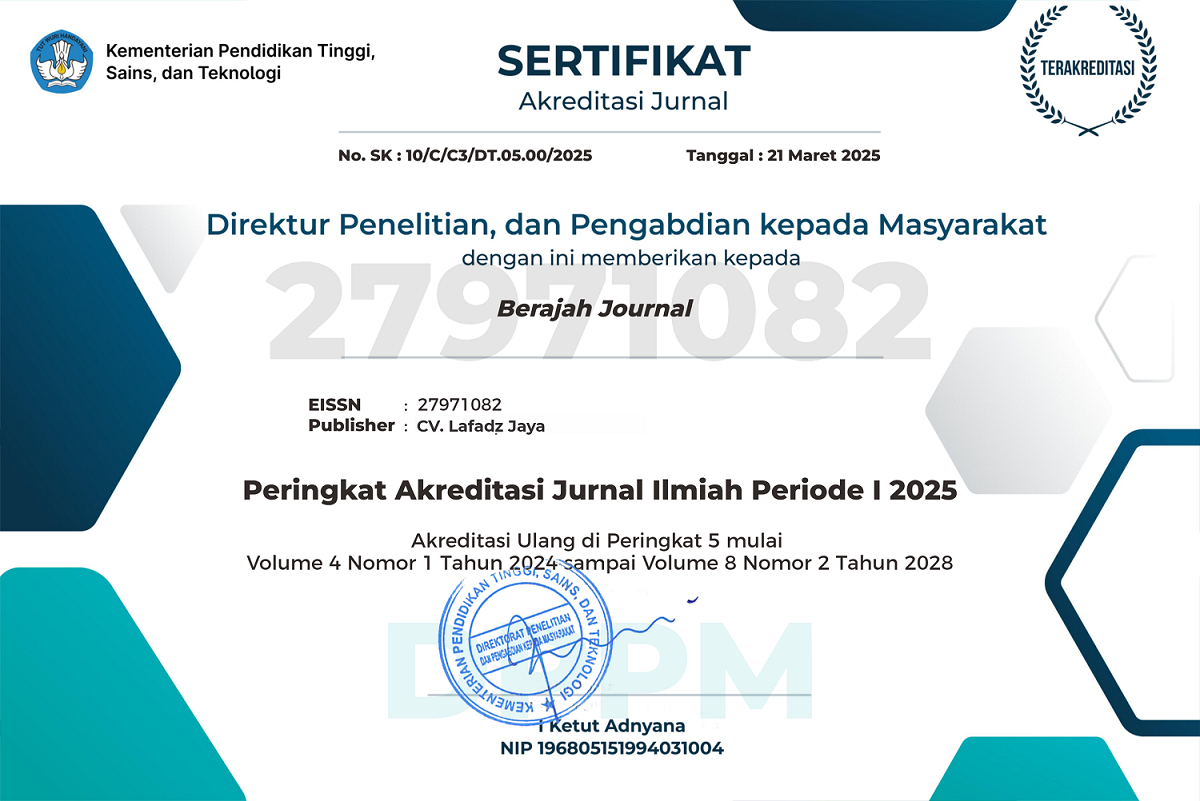SENIOR HIGH SCHOOL STUDENTS’ LEARNING EXPERIENCES OF ONLINE ENGLISH LEARNING DURING PANDEMIC
DOI:
https://doi.org/10.47353/bj.v2i2.87Keywords:
online english learning, platform, learning experiences, covid-19Abstract
Senior high school students have to take English subjects since it is essential in senior high school in Indonesia. However, due to CoVID-19 outbreaks, all activities are stopped, including the Educational Institution, which is forced every school to shift from face-to-face learning to online English learning. This situation leads students to experiences a lot of new things during the learning process. It does not only lead to generating various experiences but also various problems as well. This study was conducted at Senior High School in Sidoarjo, Indonesia. The main aim of the study was to explore the most useful online learning platform for learning English and to investigate the students’ learning experiences in terms of the technological devices used for online English learning, the quality of online English learning, and the issues regarding online English learning during COVID-19 pandemic. This study used the quantitative research method to get numerical data. In this research, online-administered questionnaires were used to gather data. The finding indicated that the most useful online learning platform is Google Classroom. However, the students also experienced some issues regarding learning material, time management, enthusiasm, study environment, assignments, and internet access and technology accessibility.
Downloads
References
Ahmad, D., Mardiana, & Rusni. (2020). Contributions of Technology, Culture, and Attitude to English Learning Motivation during COVID-19 Outbreaks. Systematic Reviews in Pharmacy, 11(11), 76–84.
Allen, I. E., & Seaman, J. (2017). Digital Learning Compass: Distance Education Enrollment Report 2017. https://doi.org/https:// files.eric.ed.gov/fulltext/ED580868.pdf
Archambault, L., Wetzel, K., Foulger, T. S., & Kim Williams, M. (2010). Professional Development 2.0: Transforming Teacher Education Pedagogy with 21st Century Tools. Journal of Digital Learning in Teacher Education, 27(1), 4–11. https://doi.org/10.1080/21532974.2010.10784651
Aristovnik, A., Keržič, D., Tomaževič, N., & Umek, L. (2016). Determining factors of students’ perceived usefulness of e-learning in higher education. Proceedings of the International Conference on E-Learning, EL 2016 - Part of the Multi Conference on Computer Science and Information Systems 2016, 3–10.
Asunka, S. (2015). Online Learning in Higher Education in Sub-Saharan Africa : Ghanaian Online Learning in Higher Education in Sub-Saharan Africa : Ghanaian University students ’ experiences and perceptions. International Review of Research in Open and Distance Learning, 9(October 2008). https://doi.org/10.19173/irrodl.v9i3.586
Atikah, N., Hussin, M., Alyani, N., & Azazi, N. (2020). Students learning experiences during COVID-19 : Work from home period in Malaysian Higher Learning Institutions. Teaching Public Administration. https://doi.org/10.1177/0144739420977900
Atmojo, A. E. P., & Nugroho, A. (2020). EFL Classes Must Go Online! Teaching Activities and Challenges during COVID-19 Pandemic in Indonesia. Register Journal, 13(1), 49–76. https://doi.org/10.18326/rgt.v13i1.49-76
Bahasoan, A., Ayuandiani, W., & Mukhram, M. (2020). Effectiveness of Online Learning In Pandemic Covid-19. International Journal Of Science, Technology & Management, 100–106.
Cakrawati, L. M. (2017). Students’ Perceptions on the Use of Online Learning Platforms in Efl Classroom. English Language Teaching and Technology Journal (ELT-Tech Journal), 1(1), 22–30. https://doi.org/DOI: https://doi.org/10.17509/elt%20tech.v1i1.9428
Chamorro, M. L. M. (2018). Comparing Online English Language Learning and Face-to-Face English Language Learning at El Bosque University in Colombia. Virginia Commonwealth University, ProQuest Dissertations Publishing. https://doi.org/https://search.proquest.com/docview/2075116363?accountid=12719
Dhawan, S. (2020). Online Learning: A Panacea in the Time of COVID-19 Crisis. Journal of Educational Technology Systems, 49(1), 5–22. https://doi.org/10.1177/0047239520934018
Escobar Fandiño, F. G., Muñoz, L. D., & Silva Velandia, A. J. (2019). Motivation and E-Learning English as a foreign language: A qualitative study. Heliyon, 5(9). https://doi.org/10.1016/j.heliyon.2019.e02394
Hasyim, M., Kuswarini, P., & Kaharuddin. (2020). Semiotic model for equivalence and non-equivalence in translation. Humanities and Social Sciences Reviews, 8(3), 381–391. https://doi.org/10.18510/hssr.2020.8341
Ituma, A. (2016). Active Learning in Higher Education. Active Learning in Higher Education, (September). https://doi.org/10.1177/1469787410387722
Kamil, A. F. (2020). Digital Divide Promoting Unequal Access to Distance Learning at the University of Indonesia.
Kirovska-simjanoska, D. (2016). Do ESP Students Prefer Face-To-Face Instruction Over Digitally Embedded Instruction ? Blogs vs . Reports ? Debates vs . Online Discussion ? Procedia - Social and Behavioral Sciences, 232(April), 170–176. https://doi.org/10.1016/j.sbspro.2016.10.042
Kwary, D. A., & Fauzie, S. (2018). Students’ achievement and opinions on the implementation of e-learning for phonetics and phonology lectures at Airlangga University. Educacao e Pesquisa, 44(1), 1–16. https://doi.org/10.1590/S1678-4634201710173240
Park, C. W., & Kim, D. G. (2020). Perception of instructor presence and its effects on learning experience in online classes. Journal of Information Technology Education: Research, 19, 475–488. https://doi.org/10.28945/4611
Rahayu, D. (2020). Synchronous Zoom Web Conference System : An Exploratory Study on Students ’ E -Learning Experience. JER, 5(1), 68–79. https://doi.org/10.22236/JER
Remuzzi, A., & Remuzzi, G. (2020). Health Policy COVID-19 and Italy : what next ? The Lancet, 395(10231), 1225–1228. https://doi.org/10.1016/S0140-6736(20)30627-9
Setyawan, A., Nur, S., Surtikanti, M. W., & Quinones, C. A. (2020). Students ’ Perception o f Online Learning during COVID-19 Pandemic : A Case Study on the English Students of STKIP Pamane Talino. 10(2), 225–235.
Sintema, E. J. (2020). Effect of COVID-19 on the Performance of Grade 12 Students : Implications for STEM Education. 16(7), 1–6.
Wibawa, A. E. Y. (2021). Implementasi Platform Digital Sebagai Media Pembelajaran Daring Di Mi Muhammadiyah PK Kartasura Pada Masa Pandemi Covid-19. Berajah Journal, 1(2), 76-84.
Downloads
Published
How to Cite
Issue
Section
License
Copyright (c) 2022 Puput Khoirunnisaa

This work is licensed under a Creative Commons Attribution 4.0 International License.






















